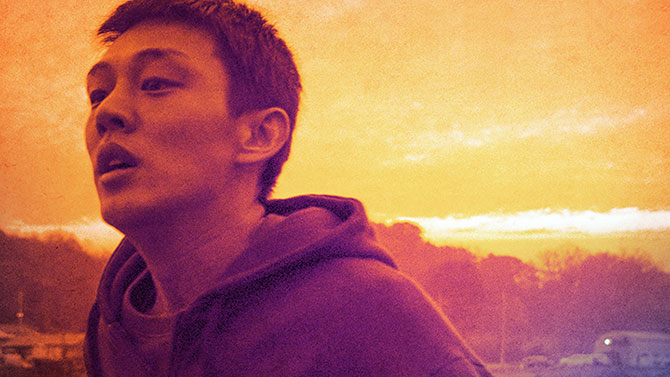
Burning (2018)
Asian cinema has become a strong, innovative, purposeful and revitalizing beast. Recently, it has earned a unique and unmatched reputation due to its unique way to experiment with different genres. The final products often turn out to be peculiar, strange, violent and elegant. We just need to take a look at the tremendous success of Parasite (2019), directed by South Korean filmmaker Bong-Joon Ho: this film was universally acclaimed by the most demanding film critics and by the general public, it won the Palme d’Or at the 2019 Cannes Film Festival and for the first time in history, a foreign film was awarded ”Best Picture” at the 2019’s Academy Awards. Now, if we go a little backwards into Asian cinema, highly iconic films are to be found, like Oldboy (2003) directed by Park Chan-wook (South Korea), Battle Royale (2000) directed by Kinji Fukasaku (Japan), or the wonderful In The Mood For Love (2000) directed by Wong Kar-Wai (China).
This time, we’re going to focus on the unparalleled Burning (2018), directed by South Korean master Lee Chang-dong. The director’s last gift had been the beautiful Poetry (2010), a critically acclaimed work of art. Poetry synthesizes Chang-dong’s entire cinematographic style, his stories are crafted with an incomparable beauty. There is a monumental respect and sensitivity towards the main characters and the environments in which they develop. Sometimes, the powerful strength of image and interpretation overshadows the intentions of telling a linear story, but in the end there is something that just clings to the most introspective corners of the viewer.
Burning remained widely unnoticed and was only appreciated by certain cinephile sectors. Chang-dong was influenced by Haruki Murakami’s short story Barn Burning (1983); and William Faulkner’s homonymous short story from 1939. On the other hand, Schrödinger’s cat paradox is also taken into account. The three worlds of film, science and literature coexist in the same universe.
Burning tells the story of Lee Jong-su (Ah-In Yoo), a young man that does little jobs and dreams of becoming an acclaimed writer. The lonely and reserved protagonist seems to be in a constant state of rambling through life, until he accidentally meets Shin Hae-mi (Jong-seo Jun), a childhood  friend. They both grew up in a rural environment, their common past and some experiences help to build a special connection between them. On their first date, Hae-mi makes an exercise of mimics- she peels an orange. Jongsu praises her action, commenting that she seems to be peeling a real orange. Hae-mi’s answer is crucial: “Don’t imagine that the orange is here, but forget that the orange is not here.” This particular sentence becomes the key to understand the narrative and to find out how this film should be deciphered. Perception is more important than the events that occur in reality.
friend. They both grew up in a rural environment, their common past and some experiences help to build a special connection between them. On their first date, Hae-mi makes an exercise of mimics- she peels an orange. Jongsu praises her action, commenting that she seems to be peeling a real orange. Hae-mi’s answer is crucial: “Don’t imagine that the orange is here, but forget that the orange is not here.” This particular sentence becomes the key to understand the narrative and to find out how this film should be deciphered. Perception is more important than the events that occur in reality.
The two friends’ extensive conversations trigger a brief sexual experience between both. Later, the girl asks Jong-su to take care of her cat while she makes a quick trip to Africa, in search of something that she calls “the great hunger”. Upon returning home, Hae-mi introduces Ben (Steven Jeun), a young and wealthy upper-class man. Ben is surrounded by a haunting aura of mystery. The triangle finally takes shape.
Without any taboos, Lee Chang-dong introduces us to the intimacy of the protagonists. The three characters are very different, yet they find  themselves as strangers navigating into an inhospitable land, heading towards a tragic hallucination of jealousy and uncertainty. We move on to Ben’s luxurious apartment, the tiny living room where Hae-mi survives, and the farm where Jong-su is trapped by his inner demons – the spaces are masterfully used to define these three enigmatic presences. Chang-dong, with fabulous staging, builds three highly addictive personalities.
themselves as strangers navigating into an inhospitable land, heading towards a tragic hallucination of jealousy and uncertainty. We move on to Ben’s luxurious apartment, the tiny living room where Hae-mi survives, and the farm where Jong-su is trapped by his inner demons – the spaces are masterfully used to define these three enigmatic presences. Chang-dong, with fabulous staging, builds three highly addictive personalities.
Hae-mi is in a constant internal conflict, looking for what she calls “the great hunger”; Jong-su is psychologically affected by the ravages of the past, hovered in the shadow of his troubled and erratic father. Meanwhile, Ben is the wealthy man out of nowhere, follower of William Faulkner’s literature, and whose personal hobby is “setting barns on fire”, Behind his smile, there is a recalcitrant darkness and incendiary narcissism. The sudden disappearance of a central character invites us to witness the perverse and dreamy atmosphere that surrounds us. Jong-su and Ben are distinguished from each other by their points of view regarding to the concept of fire. Both burn in their own particular ways. Jong-su burned his mother’s clothes when she abandoned him- this could be interpreted as an act of satisfactory vengeance. Ben burns barns to feel euphoria. The burning of Jongsu is humble and humanistic, while the burning of Ben is for pure entertainment- the wealthy man burns because he has everything in life and gets bored of it. Simultaneously, Jong-su is burning inside for Hae-mi, whereas Ben sees her as a hobby.
when she abandoned him- this could be interpreted as an act of satisfactory vengeance. Ben burns barns to feel euphoria. The burning of Jongsu is humble and humanistic, while the burning of Ben is for pure entertainment- the wealthy man burns because he has everything in life and gets bored of it. Simultaneously, Jong-su is burning inside for Hae-mi, whereas Ben sees her as a hobby.
Chang-dong mentioned that William Faulkner’s short story talks about anger. Although this film is primarily based on the story of Murakami, it is also connected to the world of the first one. Faulkner’s short story is about an angry man that rebels against life and the world, and it also vividly represents the guilt that a son feels for a fire caused by his father. Unlike Faulkner’s plot, Murakami tells a story about a man who burns barns for fun. Murakami’s barn functions as a daydream, while Faulkner’s barn represents reality itself.
 Musically, we have the pleasure to appreciate a beautiful sequence in which Hae-mi dances to the rhythm of Miles Davis‘ trumpet, with a piece taken from the soundtrack that he made for the film Ascenseur pour l’échafaud (1957), directed by French filmmaker Louis Malle. The blissful jazz and feminine silhouette merge into the evening sky, the flag of South Korea waves in the background.
Musically, we have the pleasure to appreciate a beautiful sequence in which Hae-mi dances to the rhythm of Miles Davis‘ trumpet, with a piece taken from the soundtrack that he made for the film Ascenseur pour l’échafaud (1957), directed by French filmmaker Louis Malle. The blissful jazz and feminine silhouette merge into the evening sky, the flag of South Korea waves in the background.
Burning is not an easy movie, there are few answers to gigantic questions. We must experience and interpret the descent of the characters into their own psychological hells. This is the type of film that allows the audience to appreciate the absolute control of a filmmaker over his surroundings. Sooner or later, the viewer will be fascinated by the rhythm and construction of the atmosphere. With the course of days, weeks and months; Burning keeps growing in our memories. In Murakami’s words: “Memories warm you up from the inside. But they also tear you apart”.
by Octavio Carbajal González

Coming back after watching this yesterday (after reading your review) – thank you, magical film!
I´m so happy to see your comment, Anne.
It feels amazing to help people discover movies that leave something meaningful.
I firmly believe that words and poetry can change and open up new perspectives about the world and our surroundings… That´s our goal with Vinyl Writers.
Awesome!
A masterpiece that does Murakami’s story justice. A film whose hypnotic effects peak long after the credits appear on screen. If you read afterwards in the pictures and gestures, the words and movements, apparently insignificant facial expressions and incidental remarks begin to open up an abyss that stares at you. What makes Burning so much more worrying, threatening and nerve-wracking than any David Lynch film is the fact that the mystery is based on a sober realism that is miles away from mysticism. Great review, keep up the fantastic work!
I´m very grateful for your uplifting words, Paul.
Those are beautiful and captivating thoughts !, you definitely captured the essence of the movie. Lee elevates both short stories to an unexpected level of complexity. The concept of “fire” dissolves into the meaning of life and the shape of a mystery.
Some people are comparing this film to Lynch´s “Mulholland Drive”, I totally disagree (just like you).
The Lynchean universe marks a 180 degree turn, surrealism is a whole different story.
I´ll keep up the good work for this beautiful website. Thanks.
Hi Octavio,
‘Burning’ may be negotiating the essence of fiction itself. The transformation of reality into something we just have to believe is not there. So that it can make us take off, like the film seems to do most of the time (like Murakami’s stories). It’s not unsimilar to the ‘magic realism ‘ coming from South America. Indeed, we see a striking equivalent to South American magic realism all over Asian literature and cinema, a cinema that is often strangely poetic, but also often leaves me with a “What the fuck is wrong with them?” since very often it’s very violent, twisted and perverted.
It’s interesting that he used music from the Louis Malle film, which itself is about a love triangle and a murder plot within that triangle. Always love such references that work as hints.
I have watched ‘Burning’ while I was working & rarely looking at the screen, which was completely wasted. But what I can already say is that your review and insights enhance the film and add to it, which is an own art in itself. Wonderful review,
Thank you for this!
That´s an interesting parallelism, Saliha. Definitely, there are glimpses of Latin American “magic realism” in Asian cinema. In the case of this movie, I noticed affinities with Juan Rulfo´s “The Plain in Flames” (Mexico) and García Márquez’s “Love in the Time of Cholera” (Colombia).
There are Asian filmmakers that go even further into this spiral of perversion and violence, that´s the case of Takashi Miike (Japan) and Kim-Ji woon (South Korea).
That´s true, Louis Malle´s film is about a “perfect murder” and a twisted love triangle- very similar to Hitchcock´s “Vertigo”.
I recommend you to revisit “Burning” without any kind of pressures, there´s a lot of tiny details that you might have missed. Anyway, glad you saw it !. Thank you so much for your amazing response and words of encouragement.. Another outstanding addition for VW.
Octavio,
I’ve never heard of this director or film. Your perceptive review discussing references to the Faulkner and Murakami that inspired it, how the burning concept emerges in different ways for the characters, etc. certainly intrigues me and makes we want to watch this film.
Thanks, Mark !.
I have the feeling that you´re going to love this movie. It beautifully combines everything you appreciate inside the three spheres: cinema, literature and music.
What you say here is true. Burning is a somewhat difficult watch but well worth undertaking. It’s insight revealing itself over time. You really captured the feel and loneliness of film. And the emptiness of the character Ben. The meaninglessness of the decadent life. The wasted opportunities of a life without struggle or goals. And how these eventually turn outward. Another interesting observation of “modern” life is Ben sense of privilege. The feeling that he is protected by his wealth and social status. Thank you for his great review and pointing us toward this amazing film.
Thank you so much for your words, Shawn. My goal was to capture that particular feel and loneliness.
I’m glad to see that we have the same conclusions about the characters and their specific behaviours.
The film covers a wide variety of human issues, there’s a lot going around:
Controlling/unhealthy relationships, consumerism, misogyny, psychological breakdowns, class division, sexuality, jealousy, working-class limitations, modern alienation, etc.
The fragmentation of both Koreas is also portrayed. Jong-su’s farm is very close to the border with North Korea. We hear Pyongyang’s propaganda against the business world attached to global capitalism (Seoul) .
For me, watching this movie feels like listening to Brian Eno’s “Ambient 4: On Land”, David Bowie’s “Low” (side B) or Aphex Twin’s “Selected Ambient Works Vol. 2”.
A magical movie that I discovered from your Top 10/ Films of the decade list. ✨
Thanks, Cem.
Those 10 movies were carefully chosen, each one changed my life in different ways.
Glad you enjoyed “Burning”!
You know that this movie means a lot to me. I did my best to capture the overall plot, undertones and details. I’m very proud and happy with the final result, it’s simply outstanding!.
Believe me, I’ve never seen anything like “Burning” before. The peculiarity of the film can be attributed to the phenomenal atmosphere that Chang-dong creates. There’s something very special inside the story, some kind of mysterious force. For me, the film’s undescribable uniqueness falls into the territory of “The Real” (Jacques Lacan concept).
The enigmatic personalities of the protagonists, the mysterious backgrounds, the dreamy landscapes, the thought-provoking riddles… it just goes on and on.
Life´s monotony transforms into an authentic visual hypnosis. Reality, fiction or fantasy ?. The audience decides.
Hi Octavio,
‘Burning’ may be negotiating the essence of fiction itself. The transformation of reality into something we just have to believe is not there. So that it can make us take off, like the film seems to do most of the time (like Murakami’s stories). It’s not unsimilar to the ‘magic realism ‘ coming from South America. Indeed, we see a striking equivalent to South American magic realism all over Asian literature and cinema, a cinema that is often strangely poetic, but also often leaves me with a “What the fuck is wrong with them?” since very often it’s very violent, twisted and perverted.
It’s interesting that he used music from the Louis Malle film, which itself is about a love triangle and a murder plot within that triangle. Always love such references that work as hints.
I have watched ‘Burning’ while I was working, rarely looking at the screen, which was completely wasted. But what I can already say is that your review and insights enhance the film and adds to it, which is an own art in itself.
Thank you for this!
Love Murakami and have missed this film. Thanks for the recommendation, beautiful writing as usual.
Thank you, Nina
Great!. I also admire Murakami’s writing style. You can’t miss this movie, the story is a beautiful tribute to his literature.
The movie doesn’t end after it leaves the screen, you’ll keep burning for answers.